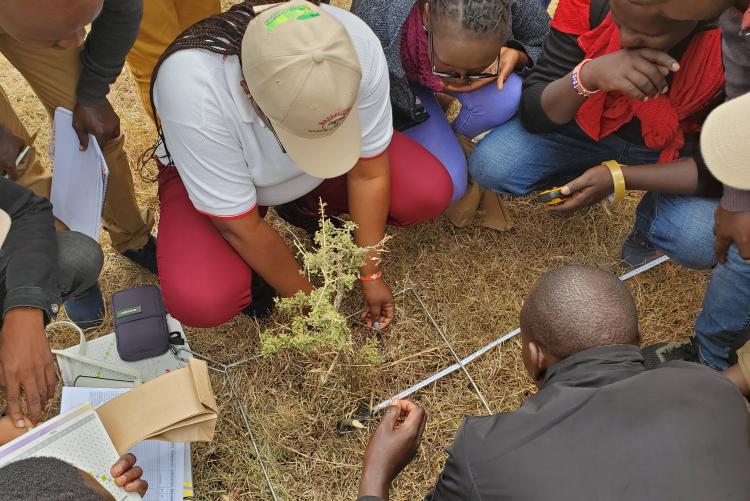Rangelands and their values, plant life forms (grassland, shrubland, desert, alpine, and some woodland ecosystems), have been facing a myriad of challenges in providing ecosystem goods and services that support the well-being of societies. The rangelands have continued to provide sufficient, safe and nutritious food to all people. With emerging threats to sustainable uses of these ecosystems, aggravated by climate change poses a threat to the rangeland vegetation; grasses, forbs, trees or shrub species that dominate these lands. Adequate inventory, monitoring and assessment of these rangelands is therefore imperative for quick and targeted interventions.
Between 31st July and 4th August 2023, the University of Nairobi research experts in Rangeland management and ecology from the Department of Land Resource Management and Agricultural Technology (LARMAT), facilitated a training through experimental and theoretical skills on Rangeland monitoring and Assessments to representatives and managers of various conservancies across Narok County, within the Maasai Mara Ecosystem.
The main goal of the training was “Enhancing the capacity of the conservancy's ecological monitoring teams and experts to monitor and assess the rangeland health periodically for management decision making.
The target trainees from conservancies were; Community conservations officers, liaison community officers, wardens, monitoring and evaluation officers, interns and volunteers, research assistants, and Conservancy managers. Twenty-six (26) participants were trained.
Dr. Oscar Koech and Carolyne Kyalo from University of Nairobi (UON), Land Resources Management and Agricultural Technology (LARMAT), and Dr. Klerkson Lugusa from United State International University Africa (USIU) facilitated the 5-Day Training Program blended with lectures and field demonstrations.
The facilitators ensured all methods on habitat analysis in monitoring and assessment of range lands were adequately demonstrated and data collected
- Log in to post comments

